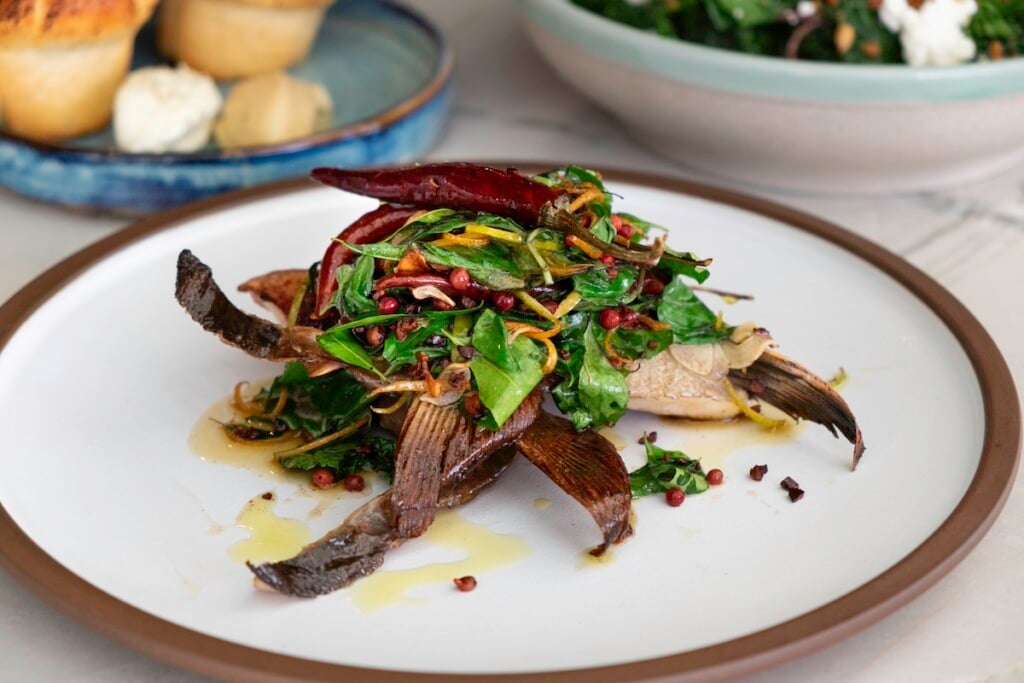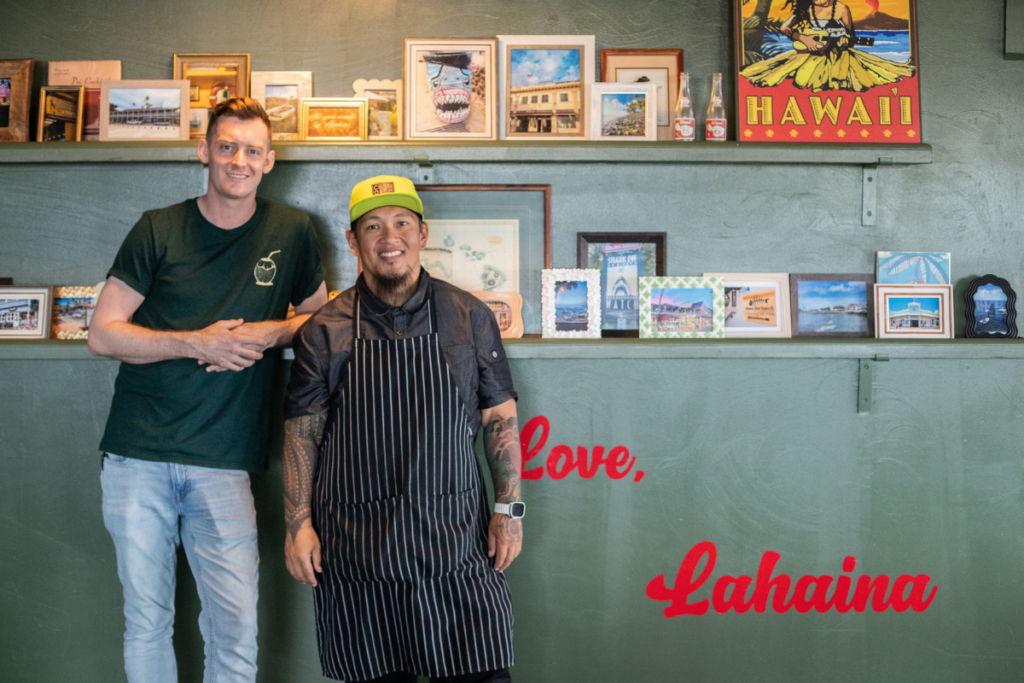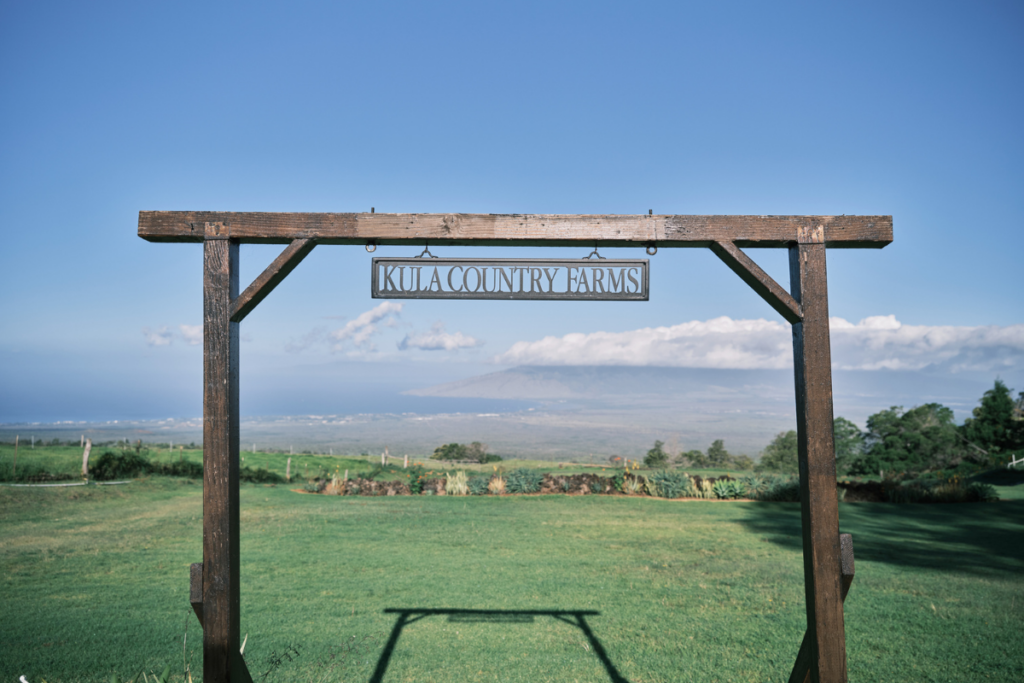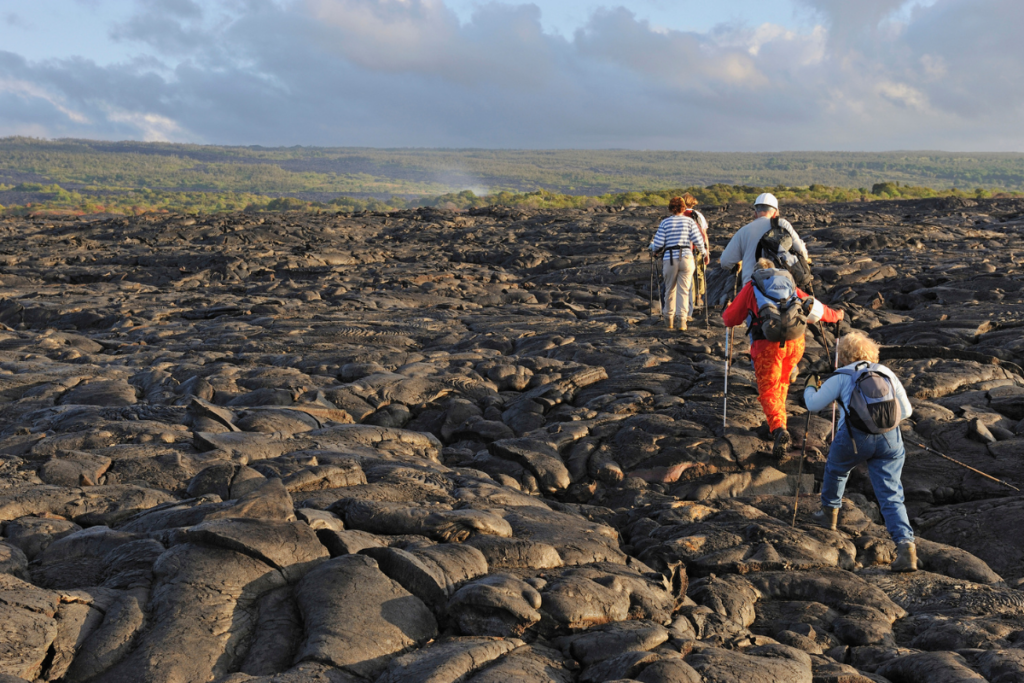The New Restaurant Koast is Worth the Trip to Maui
An Oʻahu food writer from San Francisco revisits her culinary past during a quick trip to Maui.

In 2009 I worked a meat-centric event in Napa called Primal. The outdoor feast featured several fire pits showcasing traditional cooking techniques, such as Argentinian asado with whole lamb cooked on a vertical spit. A small group of Bay Area butchers and chefs, known for their nose-to-tail sensibilities and dedication to supporting local farms, spent the afternoon butchering, grilling, smoking and braising meats for environmentally conscious diners. Chris Cosentino was one of the featured chefs.
For subsequent years I followed Cosentino’s journey as chef and owner of Incanto, Boccolone and Cockscomb—all formerly located in San Francisco—getting an anthropological lesson in food traditions each time. From Neopolitan-style tripe stew to whole-roasted pig’s head, Cosentino was willing to take risks with dishes using underutilized cuts and ingredients not common in the U.S., while staying true to a main goal: make delicious food. Since 2007, he’s shared his extensive knowledge and charisma on countless TV appearances, including “Top Chef,” “Top Chef Masters” and “Iron Chef America,” garnering fans all over the country.
On Jan. 17, Cosentino’s food arrived in Hawaiʻi with the opening of Koast. The 150-seat restaurant brings Cosentino’s old world cooking sensibilities to Maui, where he embraces Hawaiʻi-grown ingredients as a new palate to paint from.
Cosentino partnered with Alicia and Dave Soboda, who helped him open Cockscomb, working front of house, in 2014. The Sobodas dreamed that the three of them would one day open a restaurant on Maui. The trio partnered with Jason Blanchette and Jose Zepeda Jr., who run the wine and cocktail program and hired Todd Lesakowski as Koast’s executive chef. In addition to helping run front of house, Alicia Soboda is responsible for the restaurant’s impeccable design.
“I picked out the steak knives,” Dave Soboda said. “Alicia did everything else.”

Inside Koast, a new restaurant on Maui.
Photo: Sarah Burchard
Hatch Design Group made Soboda’s vision a reality culminating in a chic, high-end resort-like experience on the second floor of Wailea Village, a shopping and dining destination on Maui’s south side. Lounge in the “cabanas” on a wrap-around lānai amidst wispy pulled-back curtains, bamboo, and a color scheme of plumeria white, sand tones and stone gray all facing sunset views; feast in the open-air dining room on midcentury modern chairs under wicker globe light fixtures; host a party in the cobalt blue private dining room lined with cream-colored candles; or dine at the bar where you can see a whole ʻahi hanging in a dry-ager, waiting to be butchered.

ʻAhi drying in the restaurant.
Photo: Courtesy of Koast
Dinner is designed to be enjoyed family-style. The menu serves as a bridge between cultures drawing from classic cooking techniques and dishes with a rustic ingredient-driven approach.
“What’s on Maui is incredible,” Cosentino said. “The amount of product that’s available here, the farms … [chef] Lee Anne Wong has been instrumental in helping me, [chef] Joey Macadangdang has been great. You know, all these folks, Sheldon [Simeon], have really just been forthcoming.”
Cosentino added that Chris Kulis, co-owner of Spoon & Key Market next door, has also been instrumental in helping the Koast team get acquainted with local vendors. Thanks to these local chefs, Cosentino receives an email nearly every day with updates of what is available from local farms, fishers and ranches. He even has a dish called “bumper crop” ($14) reserved for what’s abundant during each season.
Diversity of herbs and spices is prevalent in Cosentino’s cooking. For the Kampachi collar ($18), he spoons a mountain of piping hot aromatics—pink peppercorns, orange zest, Thai chili, curry leaves, Thai basil, slivered garlic and cacao nibs—over the top of the collar, which is roasted to crisp, yet buttery, perfection. Japanese milk bread ($7), served with kaya—a Southeast Asian coconut jam similar to lemon curd in texture—is heavily sprinkled with bamboo salt and house-made black lime powder.

Koast’s Japanese milk bread with kaya, a Southeast Asian coconut jam similar to lemon curd in texture.
Photo: Sarah Burchard
“Maui is kind of booming with citrus,” Cosentino said. “So what I’m trying to do is utilize what is there in such massive quantities. So by having those limes, I can give a different characteristic of citrus while still having local citrus.”
For his dry-aged beef program, Cosentino uses Westholme Australian Wagyu, a grass-fed Japanese breed prized for its fatty texture. He improves the flavor by wrapping the beef in kombu as it ages, a technique he began in the Bay Area where cows graze on coastal grasses sprayed by seawater. For even more flavor, the steaks are rubbed with Chris Cosentino’s Umami Spice, a proprietary blend of over 20 ingredients Cosentino created 15 years ago in collaboration with Red Boat.
The hanger steak ($37) had such a delicious crust I couldn’t stop eating it. Which is also how I felt about the kale salad ($15) prepared with tender leaves of Tuscan kale, tangy Surfing Goat Dairy chèvre and a blend of crunchy bits he calls “toasted bird seed,” comprising pumpkin seeds, sunflower seeds, fried barley, fried black and red quinoa tossed in a roasted avocado dressing.

The house-made spaghettini ($26) with egg yolk, aleppo chili and dried aku—used instead of a more traditional bottarga—had me missing San Francisco and remembering why I fell in love with Cosentino’s food in the first place.
Photo: Sarah Burchard
Currently, the restaurant is BYOB while it awaits a liquor license, but that hasn’t stopped Blanchette and Zepeda from creating an extensive beverage list of non-alcoholic cocktails, Lyre’s Spirits and beer from Athletic Brewing Co. My favorite was the G+T ($14) made with Lyre’s Non-Alcoholic Pink Gin and Fever Tree tonic with a dried blood orange wheel and fresh mint and cucumber.

Mocktails on the current menu at Koast.
Photo: Sarah Burchard
If you’d like to grab a bottle of wine or beer on your way in, the neighborhood has rallied to accommodate. Kohola Brewery is now selling 6-packs to-go, Tiki Hau and Spoon & Key Market added retail bottles of wine to their offerings and Wailea Wine gives customers 15% off when customers show proof of their reservation at Koast.

For dessert, the showstopper is the frozen whole roasted pineapple ($29) stuffed with coconut ice cream, lilikoʻi frozen custard and merengue for spooning onto thick slices of pineapple caramelized with Thai chili and vanilla brown sugar syrup.
Photo: Sarah Burchard
Just after 6 p.m. the Sobodas raised the shades to reveal the sun setting behind a row of palm trees. The ocean sparkled in the distance while a flock of birds dived over the horizon. Downstairs, beer-drinking patrons spilled out of Kohala Brewery, while live music filled the courtyard and a family of five relaxed on the grass in blue Adirondack chairs. Inside Koast, I watched three older local gentlemen sharing a bottle of wine at the bar talking story. Eavesdropping, I heard many of the diners around me say they had been here before. I completely understand why.
Koast, 116 Wailea Ike Drive Unit 2204 Wailea, Maui. *Closed Sundays, Monday to Saturday 5 p.m. to 8:30 p.m., (808) 214-5545
*Sunday brunch and dinner and daily happy hour from 3 to 5 p.m. will be added once Koast gets its liquor license.


